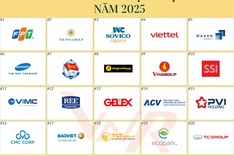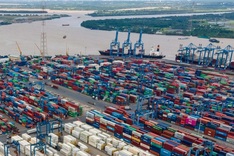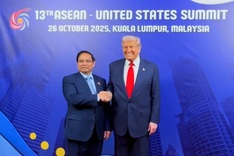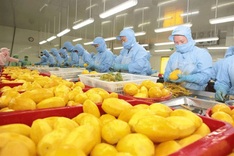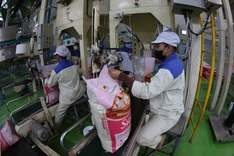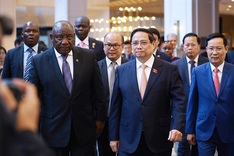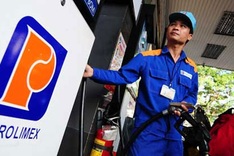>> Demand for foreign currency reveals need for stricter regulations
>> Black market for USD thrives despite ban
>> Black market USD trade almost non-existent
Agents authorised by commercial banks to buy USD are finding it hard to entice transactions with official exchange rate.
 |
| A foreign currency exchange agent at Tan Son Nhat Airport |
The disparity between the official rates and those of the black market are very high.
According to bank sources, many people are waiting to make any deposits in USD until the Government makes clearer currency policies.
Nguyen Thi Ngoc Hue, owner of Vietnam Export Import Bank’s foreign currency exchange agent in Ho Chi Minh City, said that her agent has failed to attract many individuals willing to part with their USD in recent weeks, because of the exchange rate.
On the other hand, the director of one commercial bank branch said that they are unable to meet people’s legitimate demand for foreign currency.
To encourage more sellers of USD, exchange agents want to raise the exchange rate by VND200 over the official one. Meanwhile, their commission is just 0.3%. This has caused many agents to complain about losses in currency transactions. There is also talk of imposing a 2% fee for customers wishing to buy USD.
According to the State Bank of Vietnam, the legitimate demand for dollars is not enough to change the official exchange rate.
Currently, Hanoi has 44 authorised USD purchasing agents and Ho Chi Minh City has 59.
Recently, the State Bank of Vietnam (SBV) has made moves to put a stop to the unofficial market for foreign currency. However, the demand for USD remains high, and there will always be those who are willing to find ways to profit from a surfeit of customers.
At an interview with reporters outside of the National Assembly meeting on March 28, Dr. Cao Sy Kiem, the former Governor of SBV, said the SBV has to apply a clearer and stricter regulation to request all banks to meet legitimate foreign currency needs.
For a long time, the policies have not been strictly enforced, and have failed to deal with the unofficial, or black, market. The sudden and strict enforcement of new monetary policies has led to an instability in official and unofficial currency markets.

